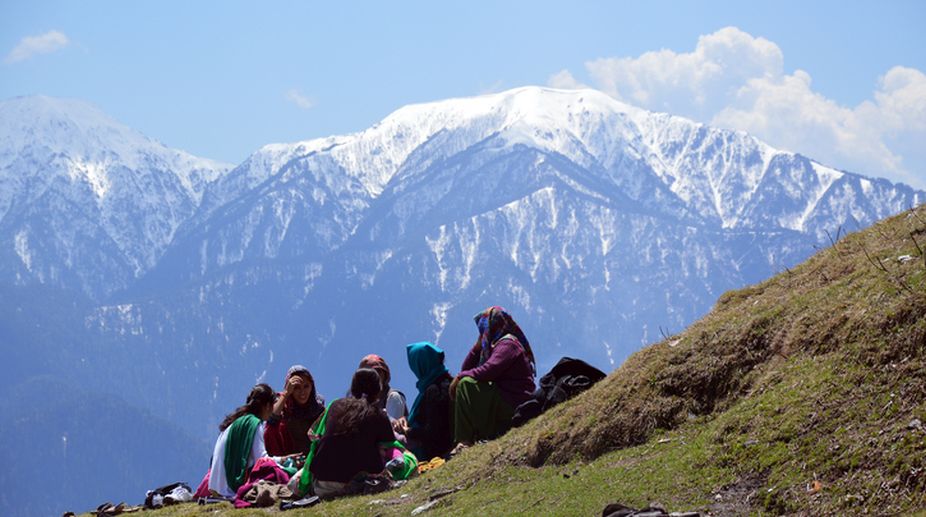Tribal women up again to move the mountains
Hitherto unsuccessful in their social battle to get a customary law, that denies them right to inherit ancestral property, scrapped,…

(Getty Images)
She is one lucky woman in the tribal Kinnaur district of Himachal Pradesh. Her illiterate but
aware mother legally transferred a chunk of land in her name when she chose not to marry, way back. This is the story of Rattan Manjari, 64, of Ribba village. But it is not the case with many other tribal women in the area, where the society is unable to break the shackles of age-old customary
law that bars women from inheriting property of father or husband. Only men can inherit property, leaving the women unequal partners.
“The customary law is recorded in Wazib ul urz, a revenue document of Settlement pertaining to early 20th century in Kinnaur. A daughter has no claim on father's property. If her husband dies, the property goes to the son, even if he is a minor. This is discriminatory and should
be scrapped,” Rattan Manjari told The Statesman.
Manjari, an activist from the grassroots, heads women NGO, Mahila Kalyan Parishad, in Reckong Peo in Kinnaur since 1989.
Advertisement
She first brought the matter of this inequality to the notice of the then Prime Minister, Indira Gandhi in 70s, and took up the Herculean task of changing the tribal mindset.
She has been moving from village to village with her brigade in Kinnaur to build consensus in tribal society to scrap or amend the customary law to give women their due. But all this met resistance from expected quarters, the tribal men, who are apprehensive that giving property right to women may throw the tribal land to non-tribals, with many tribal girls now marrying outside.
“What about those who are living in Kinnaur? We need to find a way out as the times have changed. Even in the tribal society, in many cases now, the widows, divorced and unmarried girls are being abandoned in old age. They need to have something in hand to live with dignity,”
she said.
Manjari said that the daughters are entitled to property as per ‘Taa Zindagi’ in the customary law, which they can use till they are alive. However, with no right to sell it or ‘will’ it. “This too is not being followed in letter and spirit.”
The gender gap in literacy in Kinnaur is still high with 71.34 per cent females literate against 88.77 per cent literate males.
Manjari said that the Himachal Pradesh High Court gave a judgment in June, 2015 that daughters in the tribal areas of HP shall inherit property in accordance with Hindu Succession Act of 1956 and not as per customs. “The matter is pending with the Supreme Court. The final
outcome will decide our fate,” she said.
But that does not stop Manjari from carrying the issue forward socially and politically. “We will push the government shed indifference and plead our case legally and at all other levels,” she
said.
Manjari’s Parishad has already written to 65 Panchayats in Kinnaur to discuss and pass a resolution for amendment in favour of women during special mahila gram sabhas fixed on March 8, the International Women’s day.
Advertisement